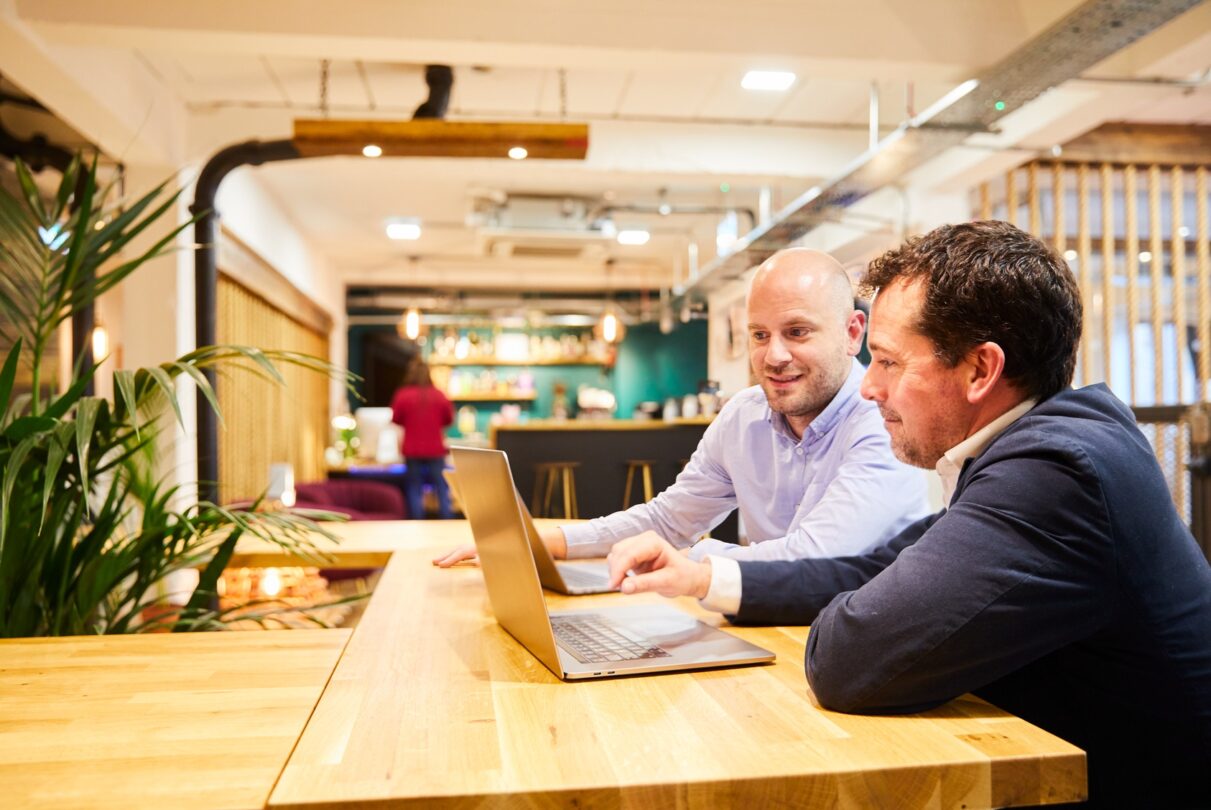Covid financial support: Grants, funds and rebates for businesses affected by coronavirus
Learn about new and existing packages of government financial support to help your business during the pandemic.

As they embrace 2022 and look to the year ahead, leaders of small and medium-sized enterprises (SMEs) know they need every bit of financial support they can get to navigate the continuing financial challenges brought about by coronavirus.
Above almost every other sector, those operating in hospitality and leisure continue to be particularly hard hit by the pandemic and are in need of financial support.
In response to this ongoing demand, in December 2021, the government announced an update of national grants and other schemes intended to help those SMEs and self-employed people who have been most severely affected by the pandemic and by concerns among consumers about spending time in public spaces.
According to trade body UK Hospitality, more than half of venues reported falls of more than 40% in their revenue during the weekend before Christmas, with a fifth of businesses experiencing a drop of more than 60%.
Around 200,000 businesses are eligible for business grants, which will be administered by local authorities and are available now, with more opening up in the coming weeks. We feature details of them in this article.
Here’s what we cover:
- Financial support for businesses during the pandemic
- Statutory Sick Pay Rebate Scheme for pandemic-related absences
- Omicron Hospitality and Leisure Grant
- Culture Recovery Fund
- Culture Recovery Fund for Heritage – Emergency Resource Support
- Additional business support
- Final thoughts on financial support during the pandemic
Financial support for businesses during the pandemic
There’s a raft of financial support available for businesses that are struggling due to the impact of Covid.
These include Statutory Sick Pay for pandemic-related absences, grants for hospitality and leisure businesses, the Culture Recovery Fund, the Recovery Loan Scheme, a reduced VAT rate for hospitality, accommodation and attractions, and the Time to Pay Arrangement.
In addition, more than £100m of discretionary funding will be made available for local authorities to support businesses outside the leisure and hospitality sector.
If you’re operating in this industry, you could be eligible for one-off grants of up to £6,000 per premise as well as having access to more than £100m of the aforementioned discretionary funding through local authorities.
Another £30m will be available through the Culture Recovery Fund, which is aimed at cultural organisations that might be struggling during the winter months.
In Scotland, First Minister Nicola Sturgeon explained how a £107m package of support is being allocated to help businesses impacted by the spread of the Omicron variant.
This includes £32m more for hospitality and leisure businesses, and £10m targeted at those parts of the hospitality industry that have been most severely affected by the requirement for table service.
The Scottish government also issued more information about eligibility for grants and details about to access them.
The Welsh Minister for Economy, Vaughan Gething, announced more details of the eligibility criteria for the Welsh government’s £120m financial support that has been made available for businesses impacted by Omicron.
In England, Scotland and Wales, almost all of this funding is available through local authorities. You should contact yours to find out what you’re entitled to and how to apply for it.
Statutory Sick Pay Rebate Scheme for pandemic-related absences
One key element of support is Statutory Sick Pay (SSP) for pandemic-related absences.
Due to the reintroduction of the Statutory Sick Pay Rebate Scheme, from 21 December 2021, if a staff member is off sick or is isolating due to coronavirus, you can reclaim the SSP you pay to them for up to 10 working days (two weeks) of sick leave from HMRC (note, this applies for businesses with 250 employees or fewer as of 30 November 2021).
You must have had a UK payroll since at least 30 November 2021 and have already paid the SSP to your staff member.
Businesses will be eligible for the scheme from the date of the announcement (21 December), and you’ll be able to make claims retrospectively from mid-January 2022.
Also, as a temporary measure, employees can claim SSP from Day 1 rather than Day 4 of their illness. If they’re caring for someone who’s self-isolating, they will also be able to claim SSP.
Omicron Hospitality and Leisure Grant
Among the financial support packages for hospitality and leisure businesses are one-off grants.
These are based on the rateable value of the business.
They range from £2,700 for a business whose property has a rateable value of £15,000 or less to £6,000 if your business’s property has a rateable value of more than £51,000.
According to the government, the Omicron Hospitality and Leisure Grant aims to support businesses “that offer in-person services, where the main service and activity takes place in a fixed rate-paying premises in the hospitality, leisure and accommodation sectors”.
The Omicron Hospitality and Leisure Grant scheme is covered by three possible subsidy allowances:
- Under the Small Amounts of Financial Assistance Allowance, you’re allowed up to £335,000 in Small Amounts of Financial Assistance over any rolling period of three financial years.
- The COVID-19 Business Grant Allowance offers up to £1,9m across all business grant schemes relating to the pandemic.
- With the COVID-19 Business Grant Special Allowance, if you have hit your limits under the Small Amounts of Financial Assistance Allowance and COVID-19 Business Grant Allowance, you or your accountant might be able to access further funding under these scheme rules of up to £10m across all COVID-19 Business Grant schemes.
As with most of the other packages, to apply for these support grants, talk to your local council (or visit their website for more details).
Culture Recovery Fund
As part of the additional support packages unveiled in December 2021, it was announced that the Culture Recovery Fund is to receive an additional £30m.
This comes on top of the £1.57bn Culture Recovery Fund rescue package, launched to support cultural organisations suffering from the economic impact of the pandemic.
Available, like many of the other packages, until March 2022, it will support cultural organisations such as museums.
Access to the fund will be at the discretion of local authorities, and you should apply for it through your local council.
Culture Recovery Fund for Heritage – Emergency Resource Support
Within this is the Culture Recovery Fund for Heritage – Emergency Resource Support initiative.
This help is available to organisations or businesses that own, work with or manage heritage based in England that are at imminent risk of failure due to coronavirus and require a grant between £10,000 and £1m.
Before you’re able to make a full application to the Cultural Recovery Fund for Heritage, you’ll need to submit a short Expression of Interest (EOI) form.
Additional business support
The measures announced in December 2021 for hospitality and other sectors complement those business support packages that are already in place.
These include business rates relief, which means the majority of businesses in the hospitality and leisure sectors will see a 75% reduction in their business rates bill across the entire financial year and a new 50% capped business rates relief in the next financial year.
Alongside these various help packages, there’s one element of support that’s being phased out: the temporary reduction in VAT for hospitality businesses.
Since 1 October 2021, the VAT rate for these businesses has been 12.5%, up from the reduced rate of 5%. This will continue until 31 March 2022. From 1 April 2022, it will revert to 20%.
Under the £1.5bn COVID-19 Additional Relief Fund for businesses that have not previously had business rates support, you’ll be protected from eviction if you’re behind on rent on your premises.
This will continue until March 2022.
You can also access finance for your business through the Recovery Loan Scheme up until June 2022.
Effective from 1 January 2022, the maximum amount available to businesses from this scheme has been lowered to £2m, as has the government guarantee, now just 70%. It’s administered by the British Business Bank and you can apply on its website.
With the Bounce Back Loan repayment flexibility, you can take a six-month repayment holiday, three six-month, interest-only periods, or extend your loan to 10 years, thereby almost halving the monthly payment.
Support for the aviation and travel sectors continues, providing packages worth more than £12bn since the beginning of the pandemic with the Airport and Ground Operations Support Scheme available until the end of March 2022.
Another ongoing lifeline offered by the government to those in all sectors is the Time to Pay arrangement.
If you’re struggling to pay your 2020/21 Self Assessment tax liability in full by the due date, which is 31 January 2022, you can set up your own time to pay arrangement online.
You’ll need to have filed your tax return for 2020/21, owe less than £30,000 and be within 60 days of the payment deadline. You’ll still have to pay off your total liability within the next 12 months, if not before.
The Chancellor has asked HMRC to offer businesses in the hospitality and leisure sectors in particular, the option of a short delay and payment in instalments, on a case-by-case basis, as part of this scheme.
Final thoughts on financial support during the pandemic
The pandemic have presented businesses with huge challenges. However, the government has responded with a plethora of support packages and other forms of financial assistance.
Even before you start on the application procedures, working your way through the various options can take some time.
However, given that most are administered by your local council, making the effort to speak to them, as well as getting professional advice on what’s most appropriate for you and your business, can offer a good return on your investment of time and money.
Managing uncertainty
Get some top tips to help you create business continuity plans that will keep your company moving during uncertain times.






